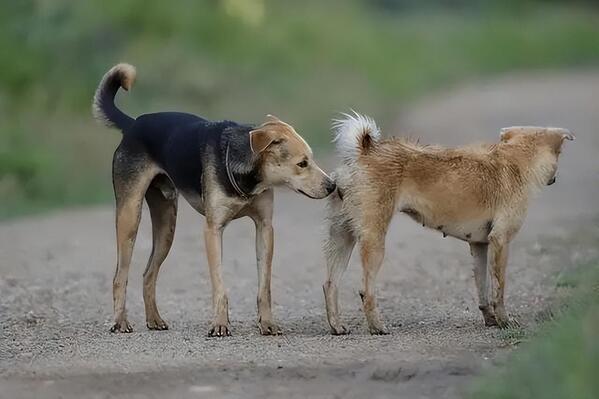In the animal kingdom, mating behaviors are as diverse as the species themselves. One intriguing aspect of these behaviors is the act of sniffing each other's genitalia prior to copulation. This practice is observed in many species, including mammals, reptiles, and even some birds. In this article, we will explore the evolutionary, biological, and social reasons behind this behavior.

The act of sniffing is deeply rooted in evolutionary biology. Many animals rely on chemical signals, or pheromones, to convey important information about their reproductive status and genetic fitness.
Pheromone Detection: Animals often produce specific scents that signal their readiness to mate. By sniffing each other's genital areas, they can detect these pheromones, which provide insights into the potential mate's fertility and overall health.
Genetic Compatibility: The scent can indicate genetic diversity. Animals often prefer mates with different genetic backgrounds, which can enhance the survival of their offspring. This preference can be influenced by the major histocompatibility complex (MHC), a group of genes linked to immune system function.
The sense of smell plays a crucial role in animal communication, particularly in reproductive contexts. Here are some biological mechanisms involved:
Vomeronasal Organ (VNO): Many mammals possess a vomeronasal organ, which is specifically adapted to detect pheromones. This organ allows them to process chemical signals related to mating.
Scent Marking: Animals often use scent marking to communicate their reproductive status. By smelling genital areas, animals can gather information about the hormonal state of potential mates.
Hormonal Influence: The hormonal levels in an animal’s body can affect their scent. For instance, females may emit stronger pheromones when they are in estrus, indicating they are ready to mate.
Mating is not just a biological imperative; it is also influenced by social structures within species. Here’s how sniffing plays a role in social dynamics:
Dominance Hierarchies: In species with complex social structures, such as wolves or primates, sniffing can help establish dominance. The ability to choose a mate can be influenced by social rank, and scent can reveal much about an individual's status.
Mate Selection: Many animals engage in a selective mating process. Sniffing helps individuals assess potential partners based on scent cues, allowing them to make informed decisions. This behavior reduces the likelihood of inbreeding and increases genetic diversity.
Different species exhibit varied behaviors related to sniffing before mating:
Dogs: Canines are well-known for their keen sense of smell. They often engage in extensive sniffing of each other’s genital areas as a way to gather information about reproductive status and health.
Cats: Felines also use scent to communicate, particularly during mating season. Female cats can emit specific pheromones that signal their readiness to mate, which males can detect through sniffing.
Rodents: Many rodents engage in similar behaviors, using scent to evaluate mates. In some species, males may even engage in scent-marking to attract females.
The act of smelling each other's genitalia before mating is a fascinating and complex behavior observed across many animal species. It serves as a critical mechanism for communication, ensuring that individuals make informed reproductive choices based on chemical signals. By understanding these behaviors, we gain insights into the intricate balance of evolution, biology, and social dynamics that govern animal mating practices.
This behavior not only highlights the importance of scent in the animal kingdom but also underscores the intricate ways in which animals have adapted to maximize their reproductive success. As research continues, we may uncover even more layers of complexity in these seemingly simple yet essential interactions.
Q1: Why is smell important in animal mating?
A1: Smell is crucial because it helps animals detect pheromones that indicate reproductive status, genetic fitness, and overall health.
Q2: Do all animals sniff before mating?
A2: While many species engage in sniffing behaviors, the extent and significance can vary widely among different animals.
Q3: How do animals choose their mates?
A3: Animals often use scent cues, along with visual and auditory signals, to assess potential mates for compatibility and genetic diversity.
By understanding the multifaceted reasons behind this behavior, we can appreciate the complexities of animal mating rituals and the evolutionary strategies that underpin them.
animal tags: Genitals
We created this article in conjunction with AI technology, then made sure it was fact-checked and edited by a Animals Top editor.